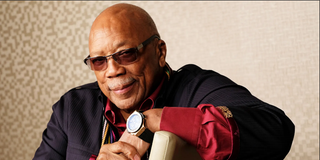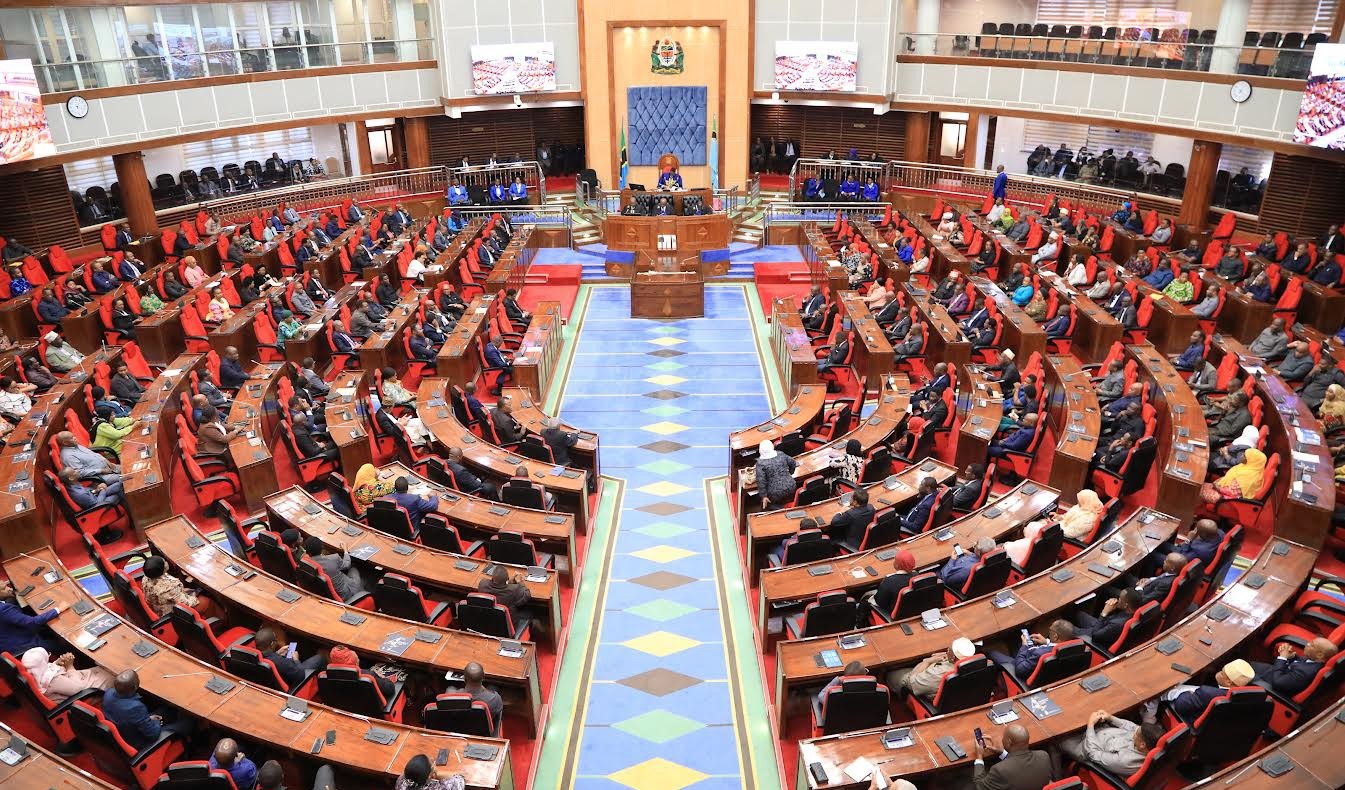Prime
How Quincy Jones Jr embraces African traditions and Swahili in music

Quincy Jones Jr
What you need to know:
- His strong connection to African cultures, as well as the infusion of Swahili themes into his music, demonstrate his deep appreciation for the continent’s rich legacy
Quincy Jones Jr, the acclaimed American record producer, songwriter, and composer, has left an indelible mark on the music industry with his unparalleled talent and visionary approach.
Beyond his illustrious career spanning over seven decades and numerous accolades, Jones's deep-rooted love for African cultures, particularly Swahili, has added a unique dimension to his musical legacy.
Born on March 14, 1933, Quincy Jones Jr has cemented his place in music history as a trailblazer, with 28 Grammy Awards and a Grammy Legend Award to his name.
From his early days as a jazz arranger to his ground-breaking work in pop music and film scores, Jones's versatility and innovation have set him apart in the industry.
However, it is not just his musical achievements that define Jones's legacy. His profound connection to African cultures and his incorporation of Swahili elements into his music showcase his deep appreciation for the continent's rich heritage.
Jones came to prominence in the 1950s as a jazz arranger and conductor before working on pop music and film scores. He moved easily between genres, producing pop-hit records for Lesley Gore in the early 1960s.
In 1968, Jones became the first African American to be nominated for an Academy Award for Best Original Song for ‘The Eyes of Love’ from the film Banning.
Jones is also well known for producing three of the most successful albums by pop star Michael Jackson, such as ‘Off the Wall', which came out in 1979, Thriller, which was released in 1982, and Bad, which came out in 1987.
One of the most notable acts to Africans by Jones in his glittering career is Michael Jackson’s song ‘Liberian Girl.’ The song was released as the fourth track from the Bad album. It was released as a single on July 3, 1989, serving as the ninth single from the album.
It was reported that the track was first written and recorded in 1983 for the Victory album with the Jacksons. Later, it was re-recorded in 1986. The song was dedicated to Michael's late, long-time friend, Elizabeth Taylor.
"I wrote that at my house in the game room. I guess I was playing some pinball or something, and the song just popped into my head. And I think I ran upstairs, put it on tape, and it became ‘Liberian Girl.". I don’t think about it, it just comes," Michael Jackson revealed.
In one of the interviews he made with Spotify, Quincy revealed: “When Michael and I were doing “Liberian Girl,” I wanted to add something special to make it more personal before we sent in the final mix. So, I called up some of the best of the best in African music, Caiphus Semenya and his wife Letta Mbulu, who at the time were living here in LA (Los Angeles) because they were exiled from South Africa during apartheid. I asked them to add a touch of Swahili, so I had Letta speak the intro phrase, “Nakupenda pia, nakutaka pia, mpenzi wee," which means something along the lines of "I love you too. I want you too, my love."
He further shared that it was such a small addition, but it became the stamp of the song!
“Sometimes, all you need is that extra little touch to make a track more relatable. I’m telling you... Just close your eyes, listen to it, and let it take you away,” he claimed.
Furthermore, Quincy revealed that Semenya is the one who wrote those lyrics, but he (Quincy) recommended Letta record them. Both Caiphus Semenya and his wife, Letta Mbulu, are jazz music legends in South Africa.
However, the song received a positive reception in Liberia, with women from the country viewing the song as empowering.
Liberian woman Margaret Carson said in an interview with The Washington Times "When that music came out, the Liberian girls were so astonished to hear a great musician like Michael Jackson thinking about a little country in Africa. It gave us hope, especially when things went bad. It made us feel that we were still part of the world."
Also, the song received a positive reception in eastern Africa due to the use of Swahili words in the record, which is a language with most speakers in the region and a national language in Tanzania.
In 1985, Jones produced and conducted the charity song "We Are the World," which raised funds for victims of famine in Ethiopia.
In a surprising revelation, the iconic song 'We Are the World,' crafted by Michael Jackson and Lionel Richie in 1985, was originally intended to feature Swahili lyrics.
This revelation unfolds in the compelling one-hour and thirty-seven-minute Netflix documentary 'The Greatest Night in Pop, which aired on Netflix on January 29, 2024.
The documentary sheds light on the remarkable recording session for the charity anthem 'We Are the World,' uniting a total of 47 pop celebrities.
At the fifty-minute and forty-five-second mark, the film captures the legendary Stevie Wonder introducing Swahili words into the song, leaving everyone speechless with the unfamiliar language, "Ulimwangu Latoto." Which is intended to translate to'sisi ni ulimwengu’.
According to the documentary, Lionel Richie recounts Stevie Wonder's desire for a different version of the song, expressing, "Stevie said, I think we need to have some Swahili somewhere in the song."
This led to a temporary halt in the session as artiste Waylon Jennings left the studio, refusing to sing in Swahili.
The unexpected twist raised concerns among the artistes, with some fearing that including Swahili lyrics might prolong the project.
A debate ensued, with some pointing out that people in Ethiopia don't speak Swahili. However, Stevie Wonder remained steadfast, believing in the necessity of Swahili lyrics.
However, those Swahili lyrics were not included in a song, but the reaction to the documentary suggested that if it were Quincy’s project, Stevie would have gotten the chance to sing in Swahili due to the fact that Quincy Jones has been showing love to Africa and East Africa by referring to his act of including Swahili lyrics into Michael Jackson’s ‘Liberian Girl'.
Not only in music, Quincy has proved his love for Africa and Swahili culture in his personal life, as he named his lastborn daughter, Kenya Kinski-Jones, 31, as it is well known that Kenya is an east African country. He also named his fourth child, Kidada, 49, which means a little girl in Swahili, a name famously used in Eastern Africa (Swahili coast) to mean the same.





